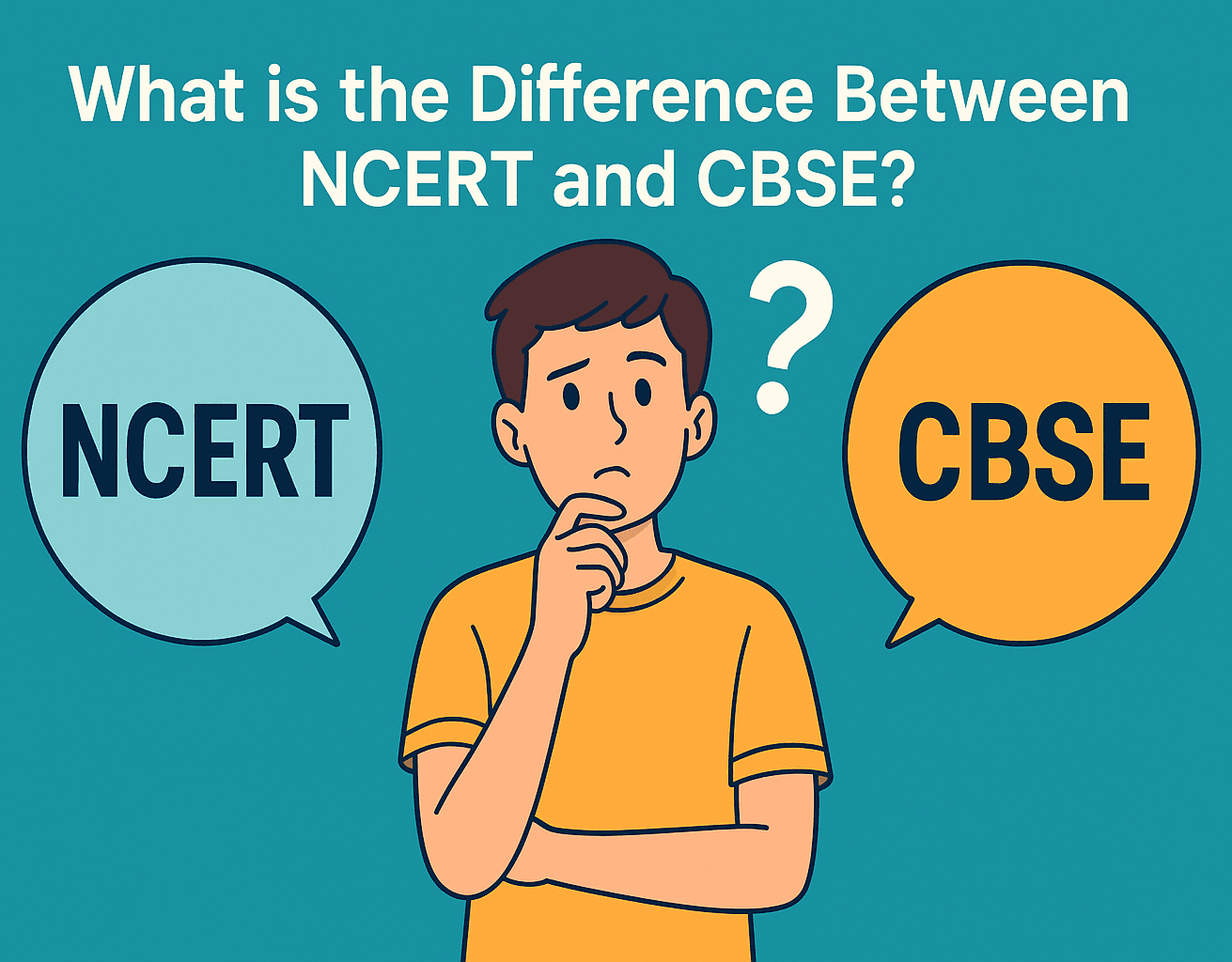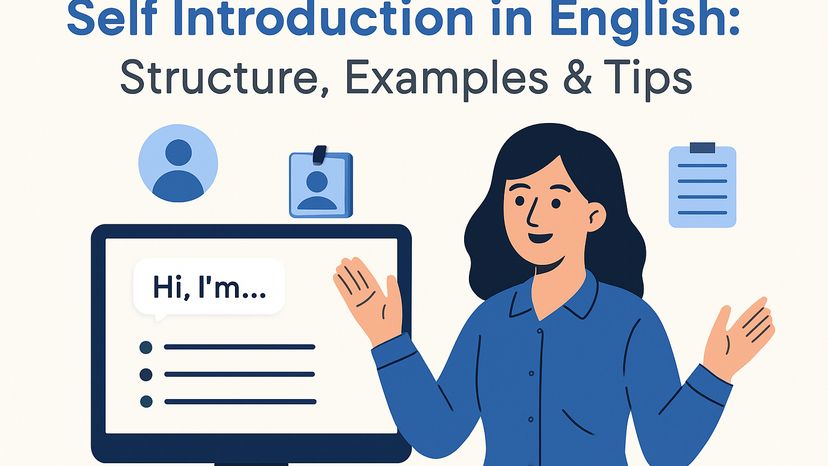Education in India frequently comes with two familiar names CBSE and NCERT. Although the majority of students, parents, and even some educators will use the terms interchangeably, they are not the same. If you have questioned why your school may be CBSE affiliated, yet your book is NCERT-based, you are not alone. Understanding the difference between NCERT and CBSE is very important when deciding on your educational future, or choosing the appropriate education system for your child. Each institution has a distinct role in shaping India’s education structure. One is focused on forming a curriculum, while the other is responsible for conducting examinations and setting standards for education. In this post, we will simplify the difference between ncert and cbse while helping you structure better educational options for the future. So let’s explore NCERT vs CBSE, and relieve you of all your confusion!
Understanding the Roles: CBSE vs NCERT
First, let’s be clear on what each body is.
What is CBSE?
The Central Board of Secondary Education (CBSE) is a national level board of education in India for public and private schools. It is administered by the Government of India. CBSE is responsible for:
- Holding of all-India or national-level exams such as Class 10 board exams and Class 12 board exams.
- CHANNEL PARTNERS : Schools can be affiliated all over India.
- Prescribe the courses of study and instructions for affiliated schools.
- Preparation of the students for competitive examination JEE/NEET.
Other than this, CBSE-affiliated schools also teach the NCERT-prescribed syllabus.
What is NCERT?
NCERT full form in education is National Council of Educational Research and Training. This statutory body was created by the Government of India to advise the central and state governments on academic matters. The various key roles of NCERT are:
- Curriculum design and textbook development at the school level.
- Researching in school education.
- Training teachers and educators.
- Publishing NCERT Textbooks is followed by CBSE schools and many other state boards.
If you’ve held a school bookmarked “NCERT,” you’ve looked at the work of this organization. These books are meant to provide a standard and high-quality model of education to students across the country.
Important Differences Between NCERT and CBSE
Here is an exhaustive comparison of the important differences between NCERT and CBSE:
| Criteria | NCERT | CBSE |
| Full Form | National Council of Educational Research and Training | Central Board of Secondary Education |
| Function | Develops content, curriculum, and research | Conducts exams, manages affiliations, ensures implementation |
| Role in Education | Academic research and textbook development | Administrative body for school exams |
| Curriculum Focus | Deep understanding and concept clarity | Application-based with focus on performance |
| Reach | Supplies textbooks to CBSE and many state boards | Only affiliated schools across India |
| Exam Conducting | No | Yes |
| Is NCERT and CBSE same? | No, they serve different roles in the education system | No, but they work together |
Understanding the Difference: A Critical Examination of Its Importance
It's crucial to understand the difference between NCERT and CBSE to enable students and parents to make educated choices about their academic paths. Children attending CBSE-affiliated schools typically encounter NCERT textbooks as their primary study material. This particular combination stands as the perfect tool for robust exam preparation alongside conceptual understanding.
The structure of competitive exams such as JEE and NEET relies on the NCERT textbook, thus students who master this material gain a preparatory advantage.
Should curriculum planning and school selection remain perplexing, consider utilizing this online psychometric test to discern your child's interests and aptitudes.
Real-Life Example
Let’s say you’re a parent trying to pick a school for your child. You come across a CBSE school that uses NCERT textbooks. Now you know that the school is affiliated with CBSE, and the academic content comes from NCERT. This means your child will learn from the best of both standard curriculum and reliable assessments.
And if you’re planning your study schedule, the CBSE Class 9 Syllabus Guide might come in handy to understand the subject-wise breakup.
If you're exploring alternatives like international boards, this IGCSE curriculum guide offers great insights too.
How to Choose What’s Right?
Here are a few things to consider when choosing between educational boards or understanding what your school follows:
- Check affiliation: Is your school CBSE affiliated?
- Curriculum material: Do they use NCERT textbooks or something else?
- Competitive goals: If your aim is a government exam or competitive test, NCERT books will be crucial.
- Learning style: CBSE focuses more on performance, while NCERT emphasizes concept-building.
If you’re still unsure, talking to an expert might help. Book a free session with a certified counsellor through our counselling.
Frequently Asked Questions
Q1. Where can I get guidance about selecting the right board or stream?
Ans. You can connect with trained experts through Infigon Futures Counselling or explore career options with their top-rated counsellors.
Q2. Is NCERT and CBSE the same?
Ans. No. NCERT and CBSE are not the same. NCERT is a publishing and research organization to create and design curricula and textbooks. CBSE is a board conducting exams and affiliated schools.
Q3. What is the NCERT full form in education?
Ans. NCERT full form is the National Council of Educational Research and Training.
Q4. Why are NCERT textbooks used by CBSE schools?
Ans. CBSE has followed the curriculum created by NCERT for certification for all affiliated schools and it is also conceptual-based. It has been designed to prepare students for competitive exams.
Q5. Does it make a difference using NCERT books from other texts?
Ans. Yes. NCERT textbooks hold protection for accuracy, clarifications, and simplifications. They also are heavily focused on conceptual learning and are also the base of many students who take part in competitive exams in India.











